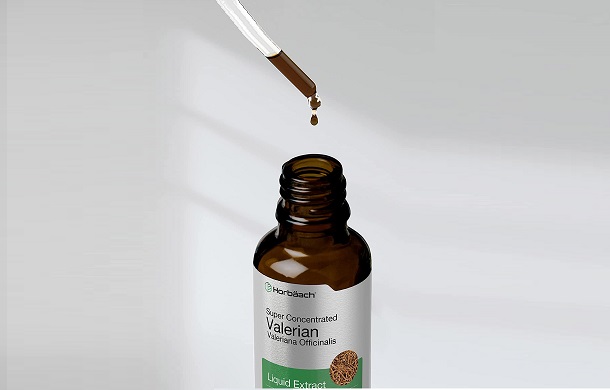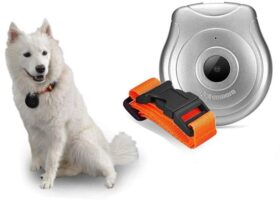Generally, valerian is considered safe both for humans and dogs.
You’ve heard about a valerian herb for your dog and its positive effects, but you are worried about what dosage you should use and can valerian root kill dogs?
In this piece of writing, we’ll introduce you to the details of valerian root use, and explain which dosage is safe for your dog to help you determine if this natural remedy is the right fit for your canine friend.
IN THIS ARTICLE:
What Is Valerian Root For Dogs?
Valerian root (Valeriana Officinalis) is a well-known herb that has been used for centuries as a natural remedy for anxiety issues and insomnia.
This plant is native to both Asian and European countries.


The valerenic acid is the active component in valerian root and it has sedative properties. This substance increases the GABA receptor response in the brain. These GABA receptors control fear and anxiety in both humans and animals.
That means Valerian root blocks the pathway of anxiety in the way it’s suppressing your dog’s nervous system. Because of that, valerian root has mild sedative effects.
It is important to note that research is still ongoing for valerian use in humans and there isn’t research that looks at its effects on dogs.
Valerian root can be found in supplements, extracts and teas.
Anxiety In Dogs
It is actually a common issue that many dog owners have experienced. Many dogs can suffer from separation anxiety – they fear when their owners are away.


Dogs don’t like to be alone and if you need to leave them alone while working, you should train them for that.
Can Valerian Root Kill Your Dog?
If you are wondering whether or not valerian should be used for your dog, then there is some happy news – yes, it can!
However, you shouldn’t give your dog this herb without vet approval.


Mostly, Valerian root is completely safe and harmless to pets (dogs, cats, horses, etc.). This herb is used to calm down and sedate dogs who suffer stress, fear and anxiety.
This can include vet visits, loud thunderstorms, new people, attacks, and other stressful events.
Effects Of Valerian Root
As we mentioned already, Valerian root has sedative effects. Apart from that, there are more scientifically proven facts:
- Calming effects – If your dog experience trauma or fear, Valerian root will help to calm them down.
- Helps with anxiety – Valerian root is anxiolytic – it will kick out anxiety and ensure relief.
- It’s anticonvulsant – This herb helps fight against seizures
- Antispasmodic properties – If dog struggle with spasms, give them Valerian root, it will stop these awful spasms.
- Relax muscles – Helps worn-out muscles to relax and provides rest.
- Antiulcerogenic properties – Giving this herb to your dog will prevent the onset of ulcers to a great extent.
- Promoting sleep – If your dog has difficulties with sleep, this root can be very useful for it.
- Immunostimulant – Valerian is an immunostimulant, meaning it helps to stimulate the immune system.
- Pain relief – There is a study that shows valerian root was effective in reducing pain in lab rats.




This natural sedative remedy will help to combat multiple forms of canine anxiety.
Also, we need to mention some side effects of valerian root, so you can make the right decision.
Side Effects Of Valerian Root
As mentioned, official research on valerian effects on dogs hasn’t yet been completed. The following side effects are based on dog owners’ and vet responses.
- Drowsiness
- Nausea
- Vomiting
- Dizziness
- Excitability
- Lethargy
Also, you shouldn’t give this herb to dogs that currently taking antifungal or anti-seizure medications or pregnant dogs.
When you and your dog visit the vet, you should inform him/her of your dog taking this herb.
How And How Much Valerian Can I Give My Dog?
The easiest way to give valerian root to your dog is to buy a tasty treat or chew that contains this herb. Read the instruction on the packaging and follow them.
Also, you can find this herb in pill, powder or oil forms.


Since valerian root comes in various forms, dosing differs from product to product.
Powders should be given in doses of 1/4 to 1/2 teaspoons daily, while oils can be offered in doses of 5-10 ml per day. When it comes to treats and chews, follow the manufacturer’s instructions.
Plus, dogs come in different sizes and shapes, so the dose can be different for a small breed like Maltese, while large breeds such as German Shepherd will need a slightly different dosage.
The level of anxiety also plays an important role when it comes to dosage. So, if your dog has mild anxiety, a lower dose will be enough.
Can You Give It To Puppies?
No, you can’t. It is not advised to give the Valerian root to weak dogs, the elderly and puppies.


Also, don’t give it to dogs who suffer serious health issues to avoid any damage.
Can I Overdose It?
There are rare documented cases of valerian root toxicity when it comes to dogs but nobody can guarantee it can’t happen to you.
Luckily, high doses won’t kill your dog but only affect the way they will behave disoriented.
Overdosing can happen if your dog already takes medication with a sedative effect.
Should I Give My Dog Valerian Root?
Well, it is up to you and your vet to decide will your beloved canine friend benefit from valerian root. It can be an amazing addition for anxiety dogs, especially if you don’t want to give them prescripted medications.


So, if dogs’ anxiety negatively affects their life, it may be worth giving them this herb. Valerian root can provide much-needed relief for your dog.
Does It Work?
As mentioned, the lack of studies means there is no guarantee that valerian root will calm your dog.
However, many dog owners claim that this herb has helped their dogs. Just like us, dogs are individuals, so what works for one dog, does not mean it will work for another.
But, you can try with small amounts of valerian root and then watch for symptoms like drowsiness and lethargy. Then you can adjust the dose.
How Long It Will Last?
Valerian root will start to work within just 30 minutes. But that depends on dog size, level of anxiety and other factors. Its effects will last for about 2-4 hours and that also can vary from dog to dog.
Is There An Alternative?
If you looking for an alternative, there are other natural remedies that will help ease dog anxiety and calm him down.
- Chamomile -Just add chamomile to your dog’s diet and it’ll provide him with calming and soothing effects. You can buy chews or treats that contain this beautiful herb.
- CBD oil – It helps with pain, seizure, and stress. CBD oil will interact with the dog’s nervous system and soothe and calm his anxiety. Add it to the dog’s food or place it in his mouth directly.
- St. John’s Wort – This is a safe alternative for dogs who are scared or struggle with separation anxiety. This herb is also good for pain relief.
- Herb Hops – It is very popular due to its sedative effects. Also, this herb has relaxing effects on the liver and laxative effects on the bowels.
To Sum Up
Valerian root is a natural sedative that works for both humans and dogs. So, can valerian root kill dogs or harm them? No, it can’t, but you should consult your vet before using this herb.































Leave a Reply